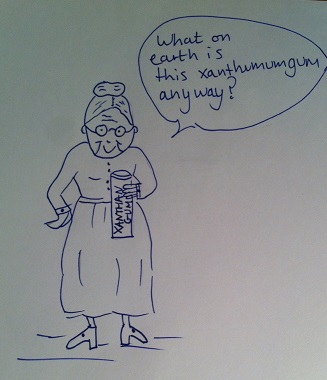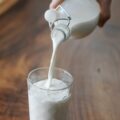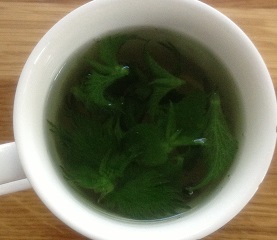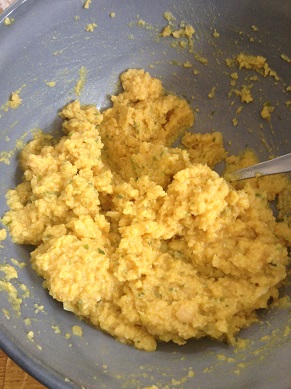Cutting out processed food is no easy feat. I know, I’ve tried it. So here, to set down some ground rules and get you started and explain how to go about cutting out the wrong things and eating the right things are my twenty tips for successfully cutting out processed food.
Just google ‘cutting out processed food’ and there are hundreds of blogs and articles with varying strictness of rules.
Read as much as you can before you start and go through your larder, fridge and freezer to see which of your favourite products e.g. sauces, packet mixes and cereals etc. need to go and which you really can’t do without, but try not to cheat.
For real benefits you need to plan, be organised and strict.
- Water – Drink lots of water. I am drinking filtered tap water but you could buy in some bottled water.
- Juice – Drink juices but be careful which you buy, stick to fresh fruit juices, not made from concentrates and consider making your own smoothie drinks.
- Hot drinks – Fresh coffee and Tea are OK. Herbal teas are great and if you can find tea leaves, even better. If you drink milk consider trying to find some raw milk, otherwise all milks are processed to some extent. It depends how far you want to take the processed food thing. You can make your own oat and rice milk – so I’ve heard. I will look into this for a future blog post.
- Breakfast – avoid boxed cereals unless the ingredients are really simple. Many are stuffed with sugar, salt and calories. Mix fruit with plain oats, cook an egg, chop fruit into a bowl of natural yogurt.
- Yogurt – Only natural yogurt is allowed – the stuff full of probiotics. If you have a dairy allergy like me then you are limited but coconut yogurt might be OK. It does have xylitol in it but this one of the better processed sweeteners on the market.
- Fruit – Eat plenty of different kinds of fresh fruit. If you can find organic this will be better. If not try to stick to local or British fruit which will probably be seasonal. Look out for hedgerow fruits like blackberries, damsons and elderberries and harvest them and freeze for use throughout the winter. Apples also last well if you have a source to pick and space to store.
- Vegetables – Try to bring in some raw veg to your diet if you can. But again, as with the fruit, try to find organic, local and British vegetables. This does mean eating what’s in season but this will also mean you try out different things and hopefully they will be fresher.
- Meat – Find out who your local farmers are and see if you can buy a meat box or visit your local Farm Shop. If you can’t do this look out meat that is British, free-range and farm reared if you can. No sausages or burgers.
- Fish – No breaded fish or fish fingers. Buy whole fish from the fishmonger and ask them to cut the fish and cut off the bits you don’t need. Or buy cuts of fish that just fish and nothing else. Fish is really easy to cook, the simplest way is to wrap in foil with some olive oil, a slice of onion, squeeze of lemon juice and some salt and pepper.
- Grains – If you can eat wheat, stick to wholewheat. The same goes for other grains. Brown rice or wild rice is better that white rice.
- Oils – avoid refined oils and stick instead to Olive oil, Coconut oil, Flax seed oil etc.
- Seasoning – stick to salt, pepper, garlic and basic herbs and spices. Avoid processed spice mixes and make your own.
- Packaged food – These are out, but if you do eat anything from a packet, make sure it’s got 3 or 4 ingredients or fewer. e.g. Rice pasta is often just rice and water. Some websites suggest only products with three ingredients or fewer, not including water. There are some processed foods which are healthy and not full or ingredients you wouldn’t have in your own cupboard so read the labels carefully if you must eat a favourite packaged food which is very healthy. And now I’ve made this rule I am delighted that it will mean ready salted crisps are still allowed. Hee Hee.
- Sugar – Sugar is highly processed and if you knew how they made it you would never eat it again. I’ve been using mollases and black strap mollasses in baking which is almost black. The black strap is like treacle and is the first product in the sugar process, full of nutients and calcium and is actually really good for you. You could also use local honey or organic maple syrup to sweeten.
- Alcohol – this is a naughty little fix to the rules. Try to find organic or biodynamic wines and stick to one glass a day.
- Ready meals and fast foods – these are out I’m afraid. But you can make up portions of other meals you have made and freeze them. This then makes an easy meal you just have to heat up so it’s almost like a ready meal and faster than cooking from scratch.
- Salads – avoid salad in a bag. It’s quite easy to grow salad leaves, even in a trough or pot in the garden. Spinach grows well and you can get varieties that grow year round and the more you tear up to eat the more it grows.
- Sauces and stocks – Most of these will be out, but you can make your own tomato sauce (or tomato free sauce) and also your own stock. I’ve discovered you can make stock in the slow cooker so that’s my next project.
- Buy little and often – so don’t stuff the fridge, try to buy what you need for a few days. This way you ensure you have fresher food to cook with and eat and avoids having throw out stuff that’s gone off.
- Local and organic – Buy local, organic food where you can and always try to find British seasonal produce.
I hope this list helps you to decide whether you can give it a go. It really is great for skin health if you are susceptible to eczema and should help asthma too, if you persevere and don’t cheat.
You will need longer to cook meals from scratch but once you get into it it’s not hard to do. Many dishes can be made quite quickly like stir frys and roasted vegetables. Hearty soups and slow cooked meals. Always cook more than you need and then you have a ready meal that you can freeze for days when you don’t feel like cooking. It doesn’t mean you have to eat bland tasteless food, experiment with things you haven’t tried before and try new recipes. Embrace it. It’ll be fun and then I won’t be doing this all on my own…
And there is a saying that I learnt recently that makes me think of my old nan, who actually had a very sweet tooth and would eat any old pink coloured iced-cake going so perhaps it doesn’t apply to her, but it goes like this: “If your granny wouldn’t know what it is, don’t eat it…”. So next time you scan an ingredients list and it’s got calcium propionate or xanthan gum or some other odd powdered filler, emulsifier, preservative, etc. think twice about whether it’s a good thing to be eating.
Good luck – so are you going to take the plunge and cut out processed foods?













Hi from the USA, specifically Texas! I happened upon your blog by looking up Nodularis Prurigo. I am definitely going to start getting rid of processed and sugary foods. I am bipolar with type 2 diabetes, and it all seems to tie together. I enjoyed your writing style.
It has helped me soooo much. If I eat processed foods and sugar high stuff my skin is itchier, my inflammation is high everywhere, and I struggle with everything a little more. It takes time to see the changes. It’s not like day one, boom you’ll see it helps. It took a few weeks to help. And you don’t have to cut them out totally. I’ve just come back from a weekend at the allergy show sampling stuff and I didn’t restrict myself, I just embraced the experience. I don’t regret it but am now dealing with the carnage from that. heheh. I’m loving coconut sugar, pure date syrup, maple syrup, honey. You can still find sweetness if you crave it, but I find my tastebuds are changing the longer I do this. It works! WE are not meant to be eating all these fillers, bulkers, emulsifiers, flavour enhancers and preservatives!